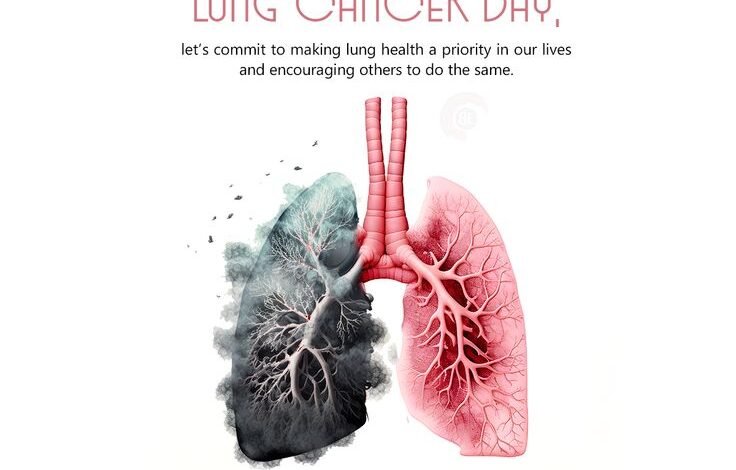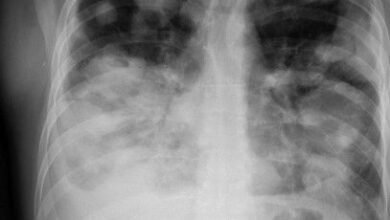United Imaging Lung Cancer Conference: Insights and Latest Research
United Imaging Lung Cancer Conference: Insights and Latest Research

Lung cancer remains one of the most challenging health issues across the globe, affecting millions every year. While treatment advancements have brought renewed hope, early detection and innovation continue to be game-changers in improving patient outcomes. Enter the United Imaging Lung Cancer Conference, a premier event bringing together leading researchers, policymakers, healthcare professionals, and patient advocates to address this pressing disease.
This conference isn’t just another meeting—it’s an opportunity to redefine possibilities, share groundbreaking research, and collaboratively chart the future of lung cancer detection and treatment. Whether you’re a healthcare professional or simply someone invested in the fight against lung cancer, this post will walk you through the highlights of the conference and its impact.
Advancements in Lung Cancer Detection That Are Changing Lives
One of the most anticipated segments of the United Imaging Lung Cancer Conference is its showcase of cutting-edge technological advancements. The conference prioritizes innovation as a driving force in tackling lung cancer detection and treatment challenges, highlighting tools that promise to make early and accurate diagnoses more accessible to millions.
Among the noteworthy technologies featured is low-dose computed tomography (LDCT), which is redefining how clinicians view lung scans. Not only does this technology allow for better imaging clarity, but its low radiation exposure ensures safer diagnostic processes for patients. Another major point of discussion is how artificial intelligence (AI) is transforming lung cancer detection by analyzing imaging data with astounding precision, identifying abnormalities that may go unnoticed by the unassisted eye. Tools like AI-driven radiology platforms are stepping in to identify nodules early and predict malignancy—helping clinicians act faster than ever.
Imagine a future where a routine scan powered by AI can identify cancer at Stage 0. Not too far-fetched, is it? That’s the promise being illustrated throughout the conference, underscoring the tangible hope these advancements carry.
Thought Leadership from World-Class Keynote Speakers
Every impactful conference relies on the visionaries it features—and the United Imaging Lung Cancer Conference is no exception. This year, participants were treated to illuminating talks by some of the world’s foremost experts in oncology and molecular imaging.
- Dr. Elaine Carter, a renowned oncologist and pioneer in AI-assisted oncology, presented data showcasing how combining machine learning with clinical expertise is saving countless lives.
- Professor Miguel Russo, a leading researcher in immunotherapy, explored how newer therapies are not just shrinking tumors but changing immune system responses to help patients live longer, healthier lives.
Their talks were delivered with refreshing clarity, breaking down complex science into actionable insights. A key takeaway from these speakers was the power of multidisciplinary teams—how collaboration across technology, biology, and patient care leads to exponential progress in tackling lung cancer.
What’s more inspiring? These experts emphasized the accessibility of their findings and encouraged grassroots healthcare centers to adopt these innovations, ensuring that no patient is left behind, regardless of geography or economic bounds.
Turning Knowledge Into Action with Early Detection
Did you know that early detection can increase lung cancer survival rates by over 50%? Though widely understood, this reality is often clouded by barriers to screening access and awareness. The conference addressed these barriers head-on, with various sessions dedicated to the ripple effects of early detection.
Programs such as community-based screening initiatives and partnerships between hospitals and workplace wellness programs were showcased, all designed to bring diagnostic tools closer to high-risk populations. Empowering primary care physicians with advanced detection protocols and increasing public awareness campaigns are steps recognized by conference leaders as critical for saving lives.
It was striking to see the real-world data unveiled—stories of patients who underwent routine screenings and found cancers at a manageable stage. Survivors spoke emotionally about how timely action not only saved their physical health but gave them a sense of trust and belonging in the care community. It’s these anecdotes that truly underscore the urgency of lung cancer awareness campaigns the conference is championing.
Success Stories of Transformation
What’s a health-focused conference without hearing from people whose lives have been directly touched by its themes? At the United Imaging Lung Cancer Conference, moments were dedicated to honoring the journeys of patients and professionals alike.
One such story was shared by Amanda Harper, a lung cancer survivor who was diagnosed during a routine workplace screening program. She recounted how early-stage detection and cutting-edge treatment turned her diagnosis from a life sentence into a life lesson. “Because of advancements in care, I got to celebrate my 40th birthday cancer-free,” she said to an emotional standing ovation.
On the professional side of the spectrum, Dr. Kevin Lee—a radiologist—described how implementing AI in his practice decreased diagnostic times by over 30%, allowing his team to focus on refining treatment plans and enhancing patient care.
These stories showcased not just individual triumphs but the broader urgency for systemic shifts. By blending innovations with human-centered care, the conference highlighted how collective success thrives when patients and experts work in harmony.
Building Bridges for Better Patient Care
Beyond technology and talks, the conference uniquely stood out for its emphasis on improving patient care ecosystems. Efforts to strengthen the relationship between diagnosis and emotional support were a recurring theme.
For instance, attendees were introduced to initiatives that address patient anxieties—dedicated care coordination teams who guide individuals through their entire cancer care process, from screenings to survivorship. Similarly, partnerships with global non-profits have created systems where financial barriers to early screenings are minimized, thereby empowering every patient to prioritize preventive care.
This focus on holistic support goes beyond hospitals. By creating networks among survivors, caregivers, and the medical community, the conference strengthens bonds that last beyond diagnosis. This sense of shared understanding fosters trust—a crucial component rarely talked about but pivotal in oncology care.
A Vision for Tomorrow
The United Imaging Lung Cancer Conference demonstrates that tackling lung cancer requires not just state-of-the-art tools but the willingness to think ahead. Its commitment to innovation, collaboration, and inclusivity positions it as more than just a conference—it’s a movement.
By empowering clinicians and patients with knowledge and resources, the conference is urging everyone to rethink how we approach one of humanity’s most difficult challenges. Do we have the technology to beat it? Absolutely. Do we have the commitment to act on that technology and make it widely available? That’s up to us.
If you’re ready to take a step toward shaping tomorrow’s cancer care landscape, join the conversation. Advocate for better screenings, support groundbreaking research, and stay engaged with health-focused dialogues. Lung cancer can’t win against a united front.



